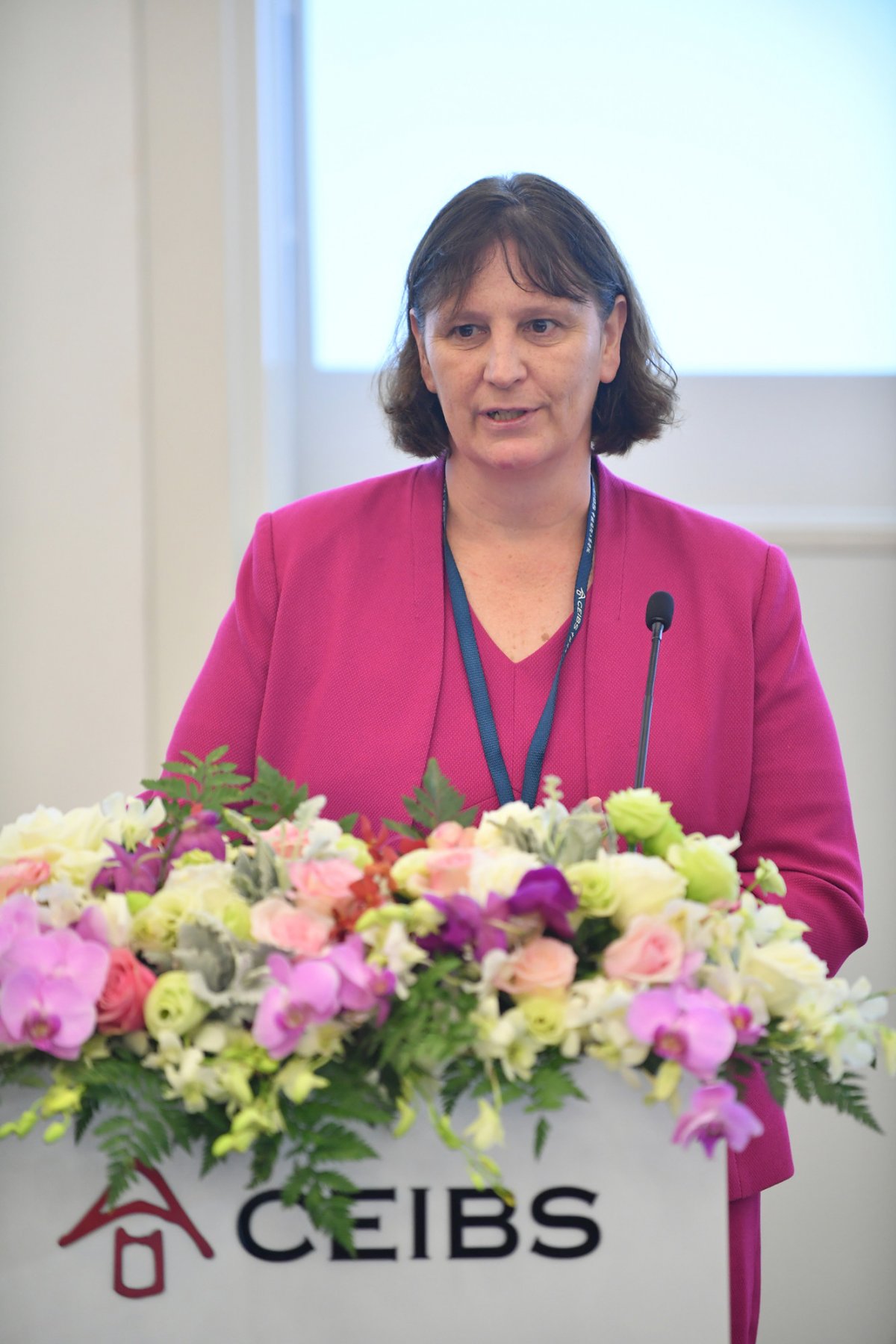3rd Annual CEIBS OB/HR Symposium
November 28, 2018. Shanghai – Proactive leaders in a fast-changing China was the focus of discussions at this year's CEIBS Organisational Behaviour & Human Resource Management Symposium entitled Leading for Change: Promoting Proactivity, Employee Voice, and Creative Performance. More than 130 professors, doctoral students, and practitioners from around the world gathered on the CEIBS Shanghai campus for the event, which was organised by the Organisational Behaviour and Human Resource Management Department under the direction of Department Chair, Philips Chair of Management, and Professor of Management Kim Tae-Yeol. Through various interactive presentations and workshops, the symposium provided a platform for learning, networking, and discussing new and exciting research in the area of leadership.
Presenters – including many distinguished leadership scholars – helped participants gain insight into how leaders succeed by promoting three change-oriented outcomes: proactivity, creativity, and employee voice. CEIBS Assistant Professor of Management Andrew Wang hosted the symposium. CEIBS Co-Dean Zhang Weijiong and Prof. Kim Tae-Yeol also offered welcome addresses in which they conveyed the OBHRM Department’s great appreciation for the contributions of the presenters and participation of the audience.
The opening session, Leading for Proactivity, was chaired by Associate Professor of Management Sebastian Schuh. In the first presentation, ARC Laureate Fellow and Professor of Organisational Behaviour at the Curtin Faculty of Business and Law Sharon K. Parker, whose research has been cited more than 17,000 times, presented a summary of her work entitled Leading for Proactivity and Wise Proactivity: Some Findings and New Directions. Prof. Parker also presented an overview model linking leadership and both the level/frequency of proactive behaviour and the extent to which that proactivity is "wise." Wise proactivity refers to proactive behaviour that considers the task and strategic context, the social and relational context, and one's own self-regulation.
Next up, Wu Liu, an Associate Professor with tenure at the Department of Management and Marketing, Faculty of Business in the Hong Kong Polytechnic University, shared a research project called Some Anger Works, Some Anger Hurts: A Leader's Display of Anger and Employee Proactive Behaviour. He and his co-authors differentiated two types of anger — integral anger (anger directly targeted at something in a task) and incidental anger (anger unrelated to and/or lacking a clear target). They then discussed how these two types of anger may influence employee proactive behaviours differently.
Leading for Employee Voice was the focus of the second session, chaired by CEIBS Assistant Professor of Management Byron Lee. Assistant Professor of Management in the College of Business at the University of Nebraska-Lincoln Troy A. Smith gave a presentation called A Follower-centric Perspective on Empowering Leadership: The Role of Employee Voice in which Dr. Smith and his co-authors analysed how two forms of follower voice impact the extent to which leaders empower the voicing follower. They used a follower-centric perspective to examine whether follower challenging and supportive voice indirectly impact a leader's decision to empower his/her voicing follower through the leader's perception of the follower's organisational commitment.
Following Dr. Smith, Professor Jian Liang, Management Professor at the Advance Institute of Business, Tongji University, discussed his research project How Should I Sell Ideas to My Leader: Do Framing Tactics Matter? The study emphasises the agency of employees and explores how and when ways of providing voice are associated with leader endorsement.
CEIBS Assistant Professor of Management Emily David chaired the third session, Leading for Creative Performance. As part of the session, Professor Yaping Gong, Chair Professor of Management at The Hong Kong University of Science and Technology, shared his research project, Narcissistic and Humble Leadership in Team Potency and Creativity: A Tale of Two Styles. Professor Chi-Ying Cheng, Associate Professor of Psychology at the Singapore Management University, also discussed her work on Women in Business: Gender-professional Identity Integration (G-PII) and Creativity. Later, Professor Aichia Chuang, u-Bon Endowed Chair in Management at the National Taiwan University, gave a talk on Enhancing the Creativity of Employees' Ideas: A Quasi-experimental Investigation of Rewards, Choice, and Personality. Finally, the presenters interacted with the audience during a stimulating and engaging Q&A session.
The OB/HR Symposium then wrapped up with a series of workshops. Participants attended one of three workshops with experts from each of the sessions where they were able to ask questions and enjoy dynamic discussions about their shared interests.
















